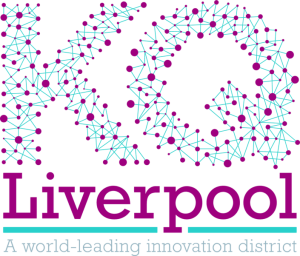New Year message from Liverpool City Council Leader
Speaking on behalf of Liverpool City Council, one of KQ Liverpool’s Partners, Council Leader, Cllr Liam Robinson, reflects on 2023 and looks ahead to the new year...
In May 2023, I was so proud to be elected Leader of Liverpool City Council. It is one of the greatest privileges of my life and of huge significance for me personally to represent the city I call home.
From day one of my term, my focus has been to end the statutory intervention at Liverpool City Council and restore trust in the Council.
I was always very conscious of the amount of work we needed to do to correct mistakes made in the past, but I am pleased that we are now making progress to address the concerns outlined when the intervention began.
Liverpool has now turned a corner and we are making significant progress. In fact, we can now expect a majority of the Government intervention to end in June 2024, with the departments of Finance, Highways and Transport returned to Council control in March 2024. We can truly say that the latest Commissioners’ Report marks the beginning of the end of intervention here in Liverpool.
Looking back at what we have achieved in 2023…
I’m especially proud of what this city achieved during the Eurovision Song Contest, we really stepped up and provided the world with a brilliant celebration of music and culture, while also boosting the local economy by £54.8million.
We’re also making great strides in education, with the proportion of good and outstanding schools in the city higher than ever.
Liverpool only thrives when our communities thrive as well, so we have delivered £17m of retrofit improvements supporting over 1,000 vulnerable residents and we have recently started piloting a scheme to tackle rogue and criminal landlords operating in the city.
I am proud of what we have delivered in 2023, but honestly, I know there is so much more to do in 2024.
My top priority is to be honest with you and to make sure that I am accountable for my decisions, there have been times in the past when the Council has not been as transparent as it should have been and I will continue to work to remedy this.
I’m also conscious that frontline services in Liverpool need to be better and up to the standards you deserve. That’s why I am excited by our new Neighbourhood Model, which we have designed to improve the delivery and effectiveness of our services in all of our communities.
The cost-of-living crisis has impacted people across the country and is keenly felt here in Liverpool. I’m saddened by the increase in homelessness that we have witnessed and combatting this is deeply important to me. I will work to improve how we tackle homelessness in the city and continue to challenge the Government as they are failing to respond to this national crisis.
I will continue to work closely with Mayor Steve Rotheram to secure a more ambitious deal for Liverpool, from Westminster. I want to make sure the decisions that impact the future of our city are made here in Liverpool.
I’m so excited for 2024 and look forward to delivering on our plan for the city. Finally, I would like to wish you and your families a Happy New Year!
All the best,
Cllr. Liam Robinson – Leader, Liverpool City Council

